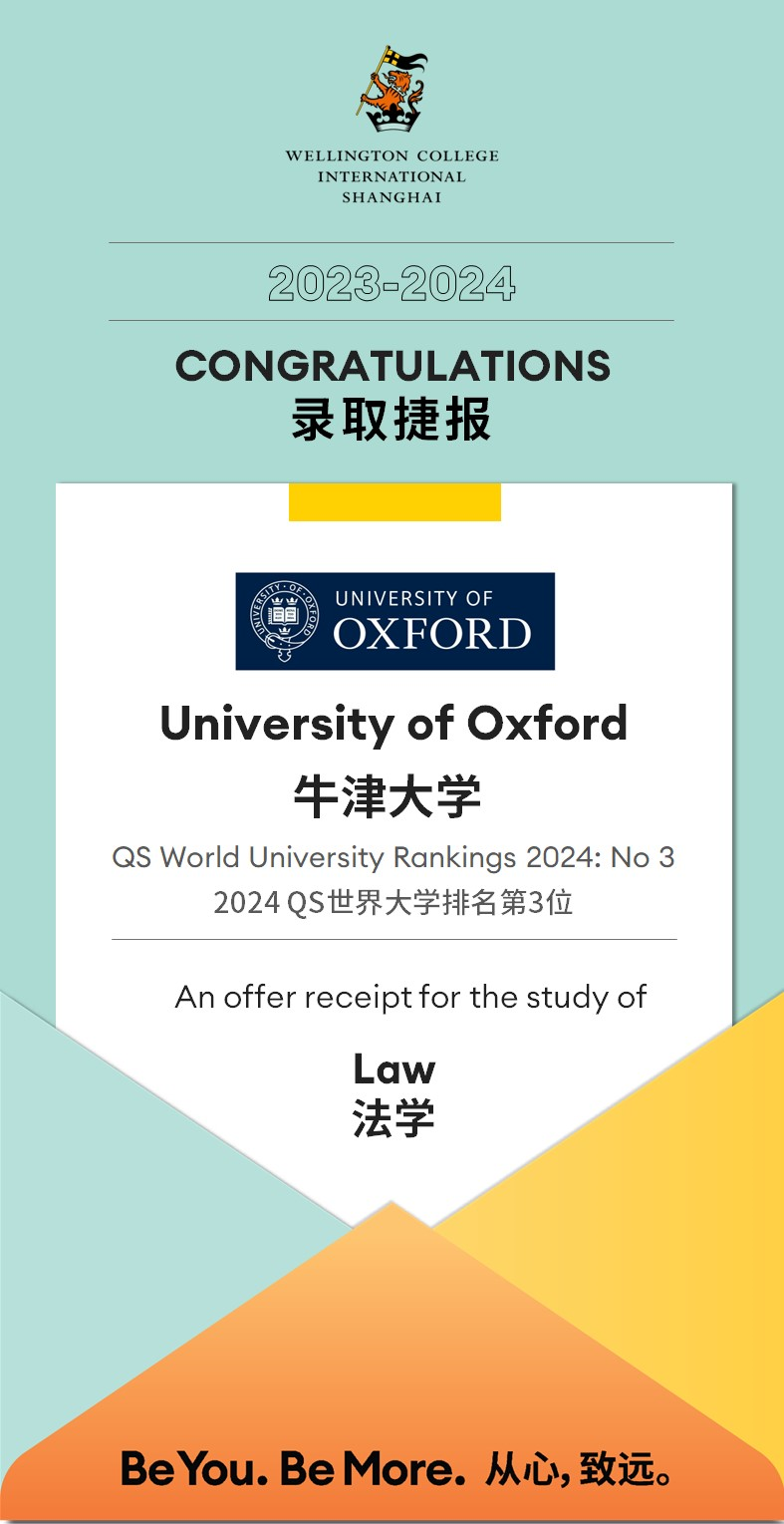
Joshua Beard
Director of Higher Education & Careers
Although UK and US universities are both well-known and frequently the top choice for pupils attending Wellington, there are notable differences between them in terms of the programmes they offer, the characteristics they look for in applicants and even the selection processes themselves. Here are five important distinctions between UK and US university applications that all pupils and parents should know.
Predicted grades versus transcripts
The main factor that will determine whether a pupil is accepted, regardless of where they apply, is going to be their academic record. In the UK, process conditional offers will be made based on teachers’ predictions of pupils’ final IB exam results. Pupils should also make sure that their IB class choices and the associated exam predictions closely align with their intended course of study. Conversely, applicants to the US will be assessed mainly based on their academic performance in years 10 – 13, which is shared with US universities via the pupils’ transcripts. Since many pupils arrive in the US unsure of their major, admissions officers usually focus on overall grade trends (always high, rising, falling) rather than only looking at specific classes or subjects.
Subject-specific exams versus standardised tests
In the UK popular programmes (medicine, law, etc.) and highly selective universities (Oxford, Cambridge) give subject-specific exams to evaluate an applicant’s aptitudes for studying their chosen subject. These exams are typically taken during the Michaelmas term of year 13, with pupils spending several months studying before the date of their exam. Applications to US universities typically include results from standardised tests like the SAT and ACT. These exams frequently function as an independent means of verifying the English and math aptitudes listed on a pupil’s transcript. Pupils will often study for one year or more to achieve the score they want.
The personal statement (UK) versus the personal essay (US)
Whether applying to a UK or US school, a substantial piece of writing will almost certainly be required by universities in both countries. The personal statement is where applicants to the UK explain why they are a good fit for the course for which they are applying. However, in the US applicants are usually required to write an essay on any topic as long as it provides additional insight into something about the pupil such as their character, values or their motivation for studying their chosen major.
Academic references versus letters of recommendation
In both countries, universities require applicants to have someone write a letter on their behalf. In the UK, this is usually an academic reference that emphasises the applicant’s qualifications for the specific course they are applying to, similar to a personal statement. On the other hand, US colleges typically expect applicants to submit two or three recommendation letters from teachers or individuals who are familiar with the pupil and can provide insights on their classroom performance or contributions to the community.
Course-focused activities versus community involvement

For the majority of pupils, some sort of statement about their extracurricular activities completes the application. In the UK activities are highlighted to further demonstrate that the pupil is well-prepared for the course(s) they have chosen. This usually appears in the personal statement and/or the academic reference. In the US, regardless of the major a pupil plans to pursue, a much broader list of activities is submitted, with the focus instead being on demonstrating how the pupil pursued their passions — academic or otherwise — and contributed to their community.

Regardless of where you apply, this process must begin long before you even submit your first application. Successful applicants constantly learn – from textbooks, lectures, discussions, debates, independent study, scientific experiments, group projects and any other activities that broaden their intellectual horizons and maximise their potential. The next phase involves pupils reflecting on the topics and methods of instruction that most interest them and then researching which universities provide the best chance to continue pursuing these. Then, when the time comes to begin applying, Wellington College International Shanghai suggests dividing the process into smaller tasks and distributing them over a longer period. This allows you to manage coursework and other responsibilities alongside the application process.
These steps, along with the support of the Higher Education and Careers team from Wellington College International Shanghai , will ensure that your child gets admitted to the school of their choice. Throughout your child’s Senior School years, this top international school in Shanghai provides personalised guidance on every aspect of the application process with classes, workshops and one-on-one meetings. And the school remains up to date on the constantly evolving admissions policies at the world’s top universities. So, pupils and parents can rest assured knowing that, when the time comes to click ‘send’, they will be well on their way to a bright future.
Celebrate the learning and successes
Regardless of which path you choose, remember to celebrate your successes. Some of year 13 pupils at Wellington College International Shanghai are already starting to do just that. This month, one of their pupils has received an offer to study law at Oxford University. This is the third year in a row that a Wellington pupil has received an Oxbridge offer!

Wellington College International Shanghai is also beginning to see a steady influx of offers from other highly rated schools in the UK, US and Asia. So, stay tuned for a full report coming soon!
Media Contact
Company Name: Wellington College International Shanghai
Contact Person: Admission Department
Email: Send Email
Phone: +86-21 5185-3866
Address:No.1500 Yao Long Road, Pudong New District
City: Shanghai
Country: China
Website: https://shanghai.wellingtoncollege.cn/
